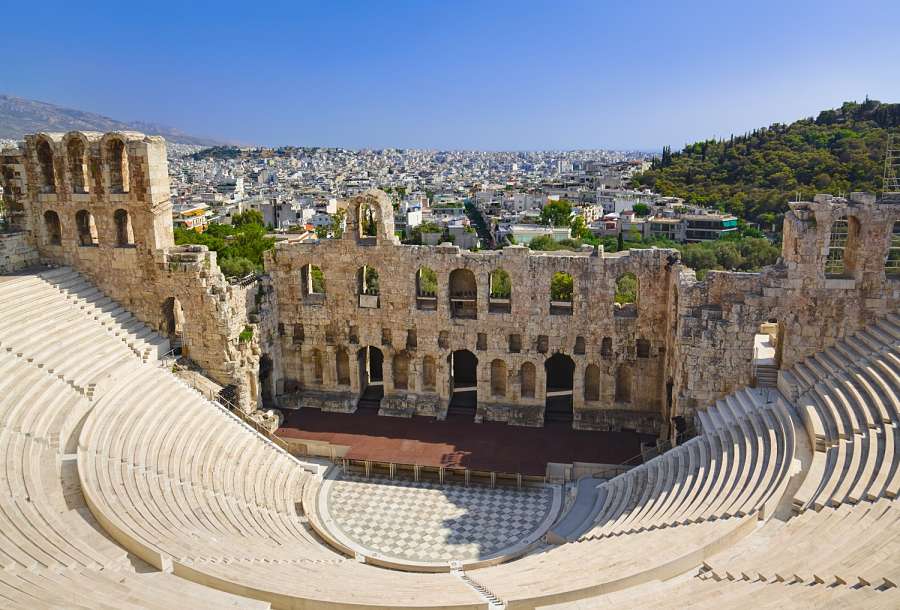Last June I sat among a packed house at Woolly Mammoth Theatre Company in D.C. for a preview of Mike Daisey’s The Trump Card, another of his funny, angry, discursive monologues about politics and personality. It was still more than a month before the Republican convention, and many months before the general election—in other words, a dewy, halcyon age that now feels like a lifetime ago—and an audience full of presumably left-of-center theatre folks, in town for the annual Theatre Communications Group conference, laughed nervously, but maybe not nervously enough, at Daisey’s ingratiating opener: “You, my friends, are fucked.”
I had spent part of that day touring D.C. sites with a delegation of theatremakers from the U.K., who were anxiously monitoring news from home about the Brexit referendum vote that day. Most of them seemed to assume that such a drastic, self-sabotaging measure didn’t stand a chance, just as most of the audience at that Trump Card performance, including yours truly, didn’t really believe that a real estate branding tycoon/reality TV star would not only steamroll the entire Republican presidential field but also pull out an electoral college victory over a vastly better organized and eminently more qualified Democratic candidate, using a largely improvised playbook of selectively targeted populism, authoritarian signaling, and assorted bigotry, meanness, and mendacity. Even Daisey—whose show did more than simply rail at Trump, instead drawing out some of the ways the candidate’s pitch and presentation resonated among communities long overlooked by both major parties—didn’t seem especially worried that he would win. But Daisey’s closing thought haunts me anew: that even if Trump didn’t win the election, his brand of craven, divisive, “truthy” politics had already won by debasing our discourse and our democratic process.
Now that Trump and his party have won actual as well as symbolic power, we are poised on a precipice of uncertainty the likes of which I can’t recall in my lifetime. The closest analogues are the aftermath of 9/11, though the decade-and-a-half of war and retrenchment that followed seem in retrospect to have been tragically inevitable, and the Great Recession of 2008, though that catastrophe had an economic logic—a terrible and rapacious logic, admittedly, but a kind of logic nonetheless—leading both into and out of it. Both events were shocks to the system that nevertheless left the system in place, however bruised or tattered. At first glance the Trump ascendency is so bewildering in part because it seems to have emerged not in response to a shock or a crisis but as a surprise attack on the system itself. But of course it shouldn’t be a surprise at all, as the “system” it looks ready to dismantle is not neoliberal late capitalism but the fragile, tenuous status quo of liberal democratic norms and freedoms, even the rule of law itself (particularly insofar as it safeguards hard-won or still-to-be-won minority rights).
What does this have to do with theatre? As many have noted, Western theatre was forged in the same ancient Greek crucible as Western democracy. If the link between America’s theatres and its democratic institutions doesn’t seem as clear, consider that the nation’s nonprofit sector has long been, and may need to be in a new and urgent way, both a bulwark against the mandates of the marketplace and a counterweight to illiberal or alienating forces in our politics. Theatres, no less than churches, social service organizations, or advocacy groups, have an essential role to play in this dislocating time. It is not just what U.S. theatres put on their stages but who is invited into their houses that seems freshly crucial. Programming matters but so does presence itself; a radical new accessibility may count as much as radical art-making. Among a heartening chorus of post-election responses from U.S. theatremakers, I cherish this, from playwright Karen Hartman: “Be the town hall, the village square, the secular temple. Right now folks are gathering. Let them in.”


